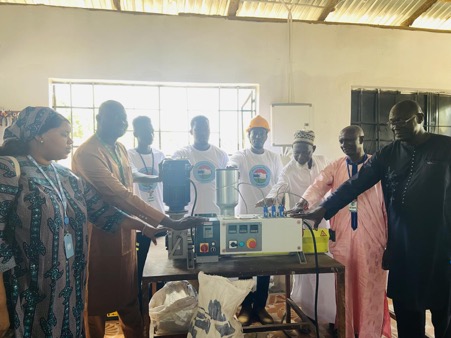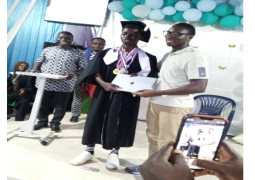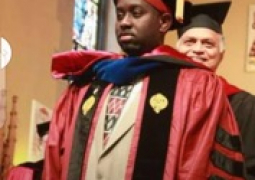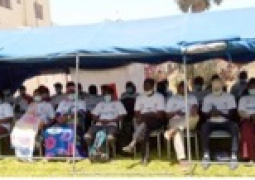
It aims to showcase the potential of plastic recycling in promoting environmental sustainability, creating employment opportunities for young people and contributing to a cleaner and healthier future for their communities.
Momodou Kanyi, in deputising for the minister for Environment, Climate Change and Natural Resources said plastic recycling is not merely a method of waste management but a cornerstone of environmental conservation and economic resilience.
“Every piece of plastic revealed is one less item polluting our landscapes, rivers and oceans. Recycling helps conserve our precious natural resources, reduces greenhouse gas emissions and decreases the demand for virgin materials, which often involve environmentally destructive extraction processes,” he said.
He added that in The Gambia, the consequences of plastic pollution are stark.
“Our beautiful coastlines, once pristine, are now frequently marred by plastic debris. This not only affects marine life but also threatens our tourism industry, which is a vital source of income for many Gambians. On land, improper plastic disposal leads to blocked drainage systems, exacerbating flooding during the rainy season and posing serious health risks,” he further said.
Ngaja Touray, deputy executive director of National Environmental Agency (NEA) said the partnership “emanated from an MOU that was signed between NEA and Precious Plastic. In that partnership, we realised the good work that Precious Plastic was doing, so we realised that we could support them in procuring equipment that they can use to recycle plastic waste.”
He noted that plastic is a very unique product that does not decompose naturally.
“It can stay in our soil or in our environment for decades before it can disappear. As a result, we find it everywhere in our environment, in our water system, in our oceans and thereby clogging the water ways,” he said.
He thanked the leadership of Precious Plastic for reaching that level with their initiative.





